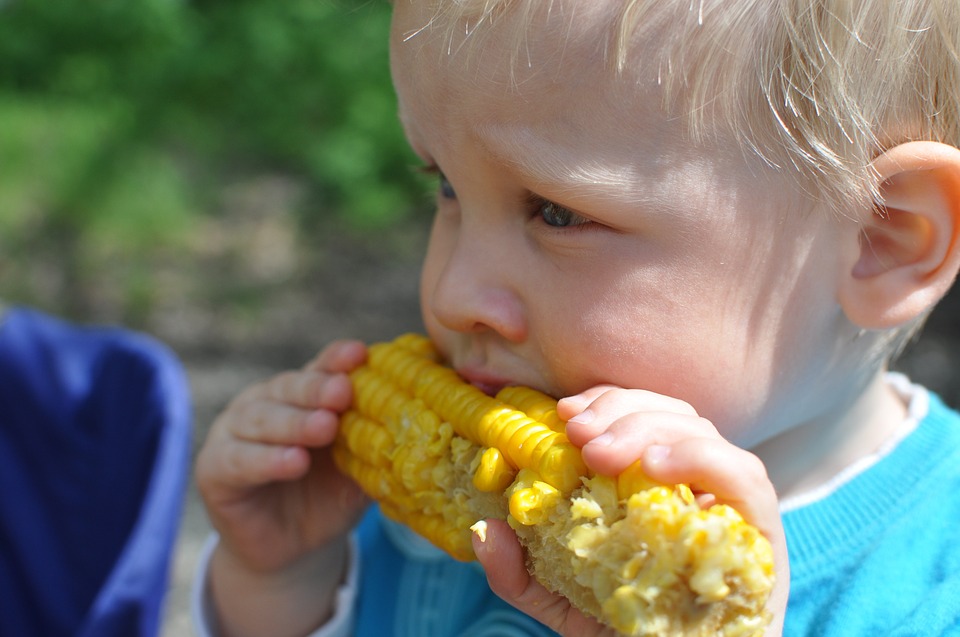Taking care of kids has always been a very challenging task for parents as it requires physical, intellectual and emotional well-being. It takes energy to perform, mind to think and emotion to take care tenderly.
Deciding the things that we allow the kids to use must be done seriously. One of the things that we all have to consider as far as taking care of kids is concerned is the selection of the things that we will let them use.
In an article written by Dr. Mark Burhenne on his guest post for Mark Sison’s website MarksDailyApply.com titled “Why Grok Didn’t Have to Floss but You Do“, he mentioned a very informative approach that can certainly influence the wholistic health conidition of a person.
What happens in your mouth affects the rest of your body, which is why your oral health is an essential part of primal living.
There’s no bypassing the mouth. And if you don’t take care of what’s inside of it, you could have more to worry about than just cavities and fillings. Today, our mouths can be a source of many problems that ail us—like poor sleep quality and poor microbiome health. But even more seriously, studies have shown that bad bacteria in the mouth can contribute to cardiovascular disease, dementia, preterm labor, pancreatic cancer, diabetes, and more.
Poor oral health has effects downstream in the body. And poor systemic health in the rest of the body can show up in the mouth—it’s a two-way street.
Obviously, Grok was not aware of this, but he didn’t have to worry about this mouth-body connection. Why? His diet matched his biology, his lifestyle was more suitably adapted to his surroundings, and, as a result, he didn’t have to deal with the onslaught of negative epigenetic influences that we do today.
In his following statements, he backs up a bit and includes how important it is to be more cautious from doing breastfeeding for a newly born child to choosing of cups for toddlers.
But let me back up a bit. This story begins when Grok was an infant.
From the moment Grok was born, he was breastfed. Baby Grok sucked on a fleshy (not plastic) nipple, which helped develop a perfect swallow and tongue reflex. There was no transition from sippy cups to soft baby food—he went from mother’s milk to unrefined, unprocessed foods, which had the toughness necessary to stimulate proper jaw development. A well-developed jaw meant his airway had plenty of room at the back of the throat to stay wide open even during the muscle collapse in deep stages of sleep, allowing him to get as much HGH (human growth hormone) as possible each night. HGH bolstered the immune system, warded off disease, and allowed Grok to be his best and brightest each day. His diet was rich in organ meats and bone marrow (Vitamin K2), which also promoted proper development of the lower third of the face, allowing for straight teeth and a wide airway for uninterrupted sleep. Baby Grok was also born vaginally, which exposed him to a host of beneficial bacteria, establishing a robust oral microbiome.
In Dr. Mark Burhenne’s concluding statements, he recommends cups from Caveman Cups to use for keeping your kids
away from sippy cups and pacifiers
If you’re able to breastfeed your children, do so
Afterwards, go straight to foods with substance, like sugar snap peas and salmon jerky, which promote proper development of the lower third of the face and airway.
Keep your kids away from sippy cups and pacifiers
Transition kids directly to a stainless steel cup, like Caveman Cups.

Watching over a child as he grows up is a noble job for all people to take. For it is in this stage, lies the most influential factors that will significantly mold their physical, mental and emotional well-being.
Now, you have an idea about different things to consider in selecting things for your kids. As what Dr. Mark Burhenne mentioned, to keep your kids away from sippy cups and pacifiers, go directly to a stainless steel cup, like Caveman Cups. What are you waiting for? Go ahead now and make your purchase.
Photo Credits:
https://pixabay.com/en/child-eating-corn-health-kid-boy-559415/

